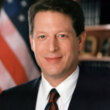Cowed: the hidden impact of 93 million cows on America's health, economy, politics, culture, and environment
Description
More Details
Table of Contents
From the Book - First edition.
Similar Titles From NoveList
Similar Authors From NoveList
Published Reviews
Booklist Review
Cows have had astonishing influence on American commerce, politics, and culture, from the times of the pioneers and cowboys to modern agricultural policy and from hamburgers to scrutiny of humane treatment and environmental impact. The Hayeses, husband and wife environmentalists, offer a long view of cows, from the centuries-long history of their domestication, use, and misuse to their current role in debates on sustainability. One calorie of beef protein requires 40 calories of energy that could have been used for heat, light, or other food. The Hayeses talked to beef ranchers, dairy farmers, cheese makers, soil experts, and public health officials to explore the enormous demands placed on land, water, and grain resources to produce beef and dairy products. They offer solid suggestions for how individuals can make changes without waiting for Congress or the agricultural lobby; for instance, eat less beef or, at least, grass-fed beef instead, and consume fewer dairy products, or at least, buy organic dairy products. Along with photos, charts, and statistics, they offer a highly engaging narrative of their journey across the U.S. and Europe in search of the complex story of the relationship between humans and bovines.--Bush, Vanessa Copyright 2015 Booklist
Publisher's Weekly Review
Those already ambivalent about beef won't be surprised by the revelations in this exposé. Much of what the authors say regarding the cattle industry and its negative effects on health, the economy, and the environment will sound familiar. They echo sentiments expressed by Frances Moore Lappé's Diet for a Small Planet (1971), Eric Schlosser's Fast Food Nation (2001), and Michael Pollan's The Omnivore's Dilemma (2006). In this substantial volume, the Hayeses, longtime sustainability advocates, rail against the treatment of livestock in feedlots across the country. They provide substantiated figures: feedlot beef, for example, "produces five times more global warming per calorie" than pork or poultry, takes 11 times as much water, and uses 28 times as much land. The conditions in which cows are often raised are frightening to consider. A place "that is hell for cows is paradise for germs"; pollutants in feedlots and lagoons, where farmers store animal sewage, can "rise into the air and travel long distances on the wind," and also sink into groundwater. Discussions on processed beef filled with "nitrates and nitrites (and sometimes nitrosamines)" and bull castration make meat consumption less than appetizing as well. The authors present a strong case against feedlot beef, giving readers significant and serious food for thought. (Mar.) © Copyright PWxyz, LLC. All rights reserved.
Kirkus Book Review
A condemnatory look at the factory-farming model that has overpopulated the planet with too many cattle, to the detriment of all involved.Indignant and sometimes with a holier-than-thou tone, the united Hayes, he an Earth Day pioneer and she an environmental lawyer, decry a system that "treats cows barbarously, even as it ruins some of the best soil on the planet, destroys irreplaceable aquifers, fills the air with warming gases, and creates enormous dead zones at the mouths of rivers." Ground zero for that nefarious activity is Iowa, where the authors do a grim mathematical assessment of the cost in topsoil and corn to keep cows alive and fat long enough to make it to the nearest fast-food restaurant. Cows are necessary, of course; as the authors note, they're essential to the dairy industry, especially inasmuch as "female bison don't take kindly to humans handling their small teats." Necessary or no, the authors attack the systematic mistreatment of cattle on feedlots and in holding pens, with the sentient animals reduced to cogs; cattle enrich us, but their lives are "cruelly diminished in the process." But maybe they don't enrich us after all. As the authors point out, pathogens can be killed by cooking beef thoroughly, but antibiotics can resist heat and can wreak havoc on the human ecosystem; if we are what we eat, then we are similarly diminished. Though their argument is sometimes preachy, and perhaps necessarily so, the authors don't content themselves with jeremiad alone but instead offer positive things one can do. These include spending more on food to buy grass-fed and organic and homegrown, a luxury that of course not everyone can afford, and favoring bison meat over beef, to say nothing of eating less meat to begin with. Provocative though unlikely to reach far beyond the choir box. Copyright Kirkus Reviews, used with permission.
Booklist Reviews
Cows have had astonishing influence on American commerce, politics, and culture, from the times of the pioneers and cowboys to modern agricultural policy and from hamburgers to scrutiny of humane treatment and environmental impact. The Hayeses, husband and wife environmentalists, offer a long view of cows, from the centuries-long history of their domestication, use, and misuse to their current role in debates on sustainability. One calorie of beef protein requires 40 calories of energy that could have been used for heat, light, or other food. The Hayeses talked to beef ranchers, dairy farmers, cheese makers, soil experts, and public health officials to explore the enormous demands placed on land, water, and grain resources to produce beef and dairy products. They offer solid suggestions for how individuals can make changes without waiting for Congress or the agricultural lobby; for instance, eat less beef or, at least, grass-fed beef instead, and consume fewer dairy products, or at least, buy organic dairy products. Along with photos, charts, and statistics, they offer a highly engaging narrative of their journey across the U.S. and Europe in search of the complex story of the relationship between humans and bovines. Copyright 2014 Booklist Reviews.
Publishers Weekly Reviews
Those already ambivalent about beef won't be surprised by the revelations in this exposé. Much of what the authors say regarding the cattle industry and its negative effects on health, the economy, and the environment will sound familiar. They echo sentiments expressed by Frances Moore Lappé's Diet for a Small Planet (1971), Eric Schlosser's Fast Food Nation (2001), and Michael Pollan's The Omnivore's Dilemma (2006). In this substantial volume, the Hayeses, longtime sustainability advocates, rail against the treatment of livestock in feedlots across the country. They provide substantiated figures: feedlot beef, for example, "produces five times more global warming per calorie" than pork or poultry, takes 11 times as much water, and uses 28 times as much land. The conditions in which cows are often raised are frightening to consider. A place "that is hell for cows is paradise for germs"; pollutants in feedlots and lagoons, where farmers store animal sewage, can "rise into the air and travel long distances on the wind," and also sink into groundwater. Discussions on processed beef filled with "nitrates and nitrites (and sometimes nitrosamines)" and bull castration make meat consumption less than appetizing as well. The authors present a strong case against feedlot beef, giving readers significant and serious food for thought. (Mar.)
[Page ]. Copyright 2014 PWxyz LLC





























